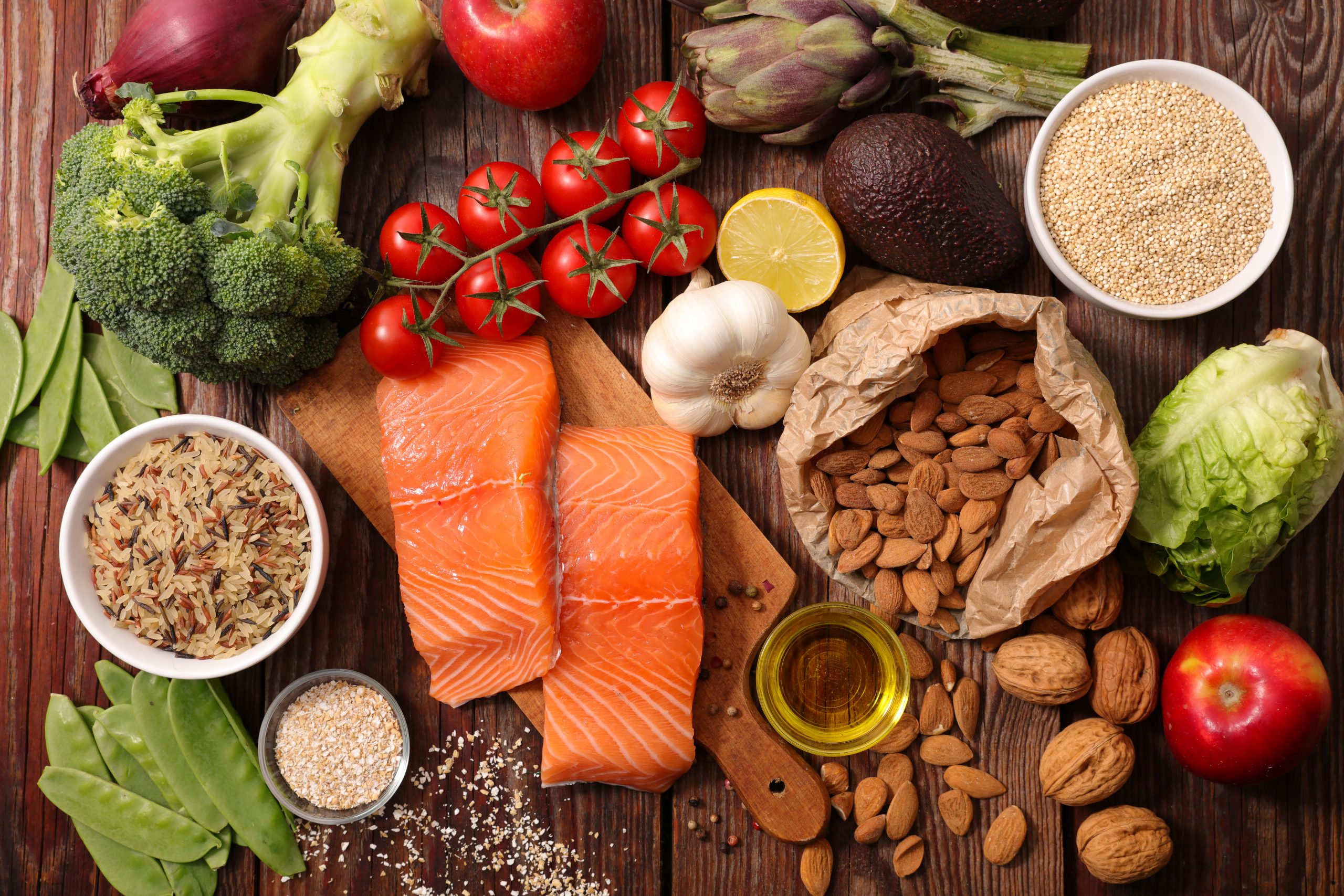Foods That Help Improve Digestion and Prevent Digestive Issues

Digestive problems can be a tremendous nuisance, affecting our daily lives and making us uneasy.
Fortunately, there are tasty and nutritious meals that can aid digestion and prevent such problems from arising.
The following article will examine foods that encourage healthy digestion and gut wellness.
We’ll delve into digestion-boosting foods, from fiber-rich veggies and fruits to fermented meals brimming with bacteria.
So, whether you’re a lover of Halal Shawarma or looking for other delicious options, keep reading to learn the secret to a happy belly!
The Fibre Effect
A diet high in fiber is frequently acclaimed as a digestive hero, and deservedly so. Fibre bulks up your feces, making them simpler to pass through your digestive system.
It not only avoids congestion but also aids in managing one’s bowels. Entire vegetables, grains, and fruits are high in fiber.
Adding bread made from whole grain, oatmeal, brown rice, and millet into your diet can help you digest better.
Because these cereals are less treated than refined grains, they retain more fiber and minerals.
Furthermore, fruits such as apples, bananas, fruit, and oranges are high in fiber and other necessary elements. They make a filling and digestible snack or supplement to meals.
The Wonders of Water
Water Wonders hydration is essential for sustaining healthy digestion. Water softens feces and aids in its travel through the gastrointestinal system.
When thirsty, your body compensates by absorbing more fluid from the colon, resulting in harder stools and constipation.
It is critical to stay hydrated during the day to prevent this. On the one hand, individual requests could differ based on variables such as age, level of sport, and climate.
Aside from simple water, you can add flavor and hydration by incorporating herbal teas and enriched water. Herbal drinks that include mint, lavender, and ginseng can help digestion.
Probiotics to Enhance Gut Well-being
Probiotics are good bacteria that support maintaining a healthy gut ecosystem by controlling the I’m interested in learning more about microbiota. Can you share any insights or information about it?
They can aid Let’s talk about digestion And relieve signs of gastrointestinal diseases such as bloating, gas, and diarrhea.
Fermented foods are rich in I would be happy to assist you with information about probiotics and the perfect digestion diet.
Probiotic Foods: Yogurt, Kefir, Sauerkraut, and Kimchi
The most common probiotic food is yogurt. It contains live cultures of good bacteria that enhance general gut health and helps digestion, including Lactobacillus and Bifidobacterium.
Choose yogurt variants with live, active cultures instead of those with sugar or other artificial ingredients. Particularly protein-rich options like Greek yogurt can help you feel fuller longer.
One such excellent source of probiotics is the fermented milk beverage kefir.
It has a tart taste and is frequently well-accepted by lactose-intolerant people.
You can receive the health advantages of fermented veggies and probiotics by including sauerkraut or kimchi in your meals.
Ginger and peppermint are digestive superheroes.
Ginger and mint have been used for years to aid digestion. Ginger includes chemicals known as gingerols, accelerating speed up digestion while alleviating bloating and nausea.
Including ginger in your meals or drinking ginger tea might help relieve stomach discomfort. Grated fresh ginger can be used in stir-fries, smoothies, or a relaxing tea.
Ginger supplements can also be found in capsules or chewable pills, which may be more convenient for people who want a more accessible option.
Peppermint was used for generations to aid digestion due to its cooling and soothing effects.
Peppermint includes menthol, which relaxes the digestive tract muscles, allowing for easier digestion.
Aloe Vera’s Healing Power
Aloe vera, best recognized for its exterior use, can also help your digestive system.
The gel inside aloe vera leaves contains several substances contributing to its medicinal properties, such as anti-inflammatory and calming characteristics.
Begin by selecting the fresh leaves of aloe or look for readily accessible aloe vera gel and juice to add aloe vera to your diet.
Remove the outer green peel to separate the clear gel from fresh foliage. The gel can then be blended with water or added to milkshakes for a moderate flavor.
Turmeric and Papaya are Both Anti-inflammatory Foods
Inflammation in the gut can cause pain and digestive issues.
Anti-inflammatory foods can aid in soothing the intestines and support overall gut well-being.
Turmeric, a brilliant yellow spice often used in Indian cuisine, includes curcumin, an active element with great anti-inflammatory properties.
Curcumin soothes the digestive tract by decreasing the production of inflammation markers in the body’s tissues.
Including turmeric in your food is a tasty way to reap its advantage.
Golden milk, an increasingly common drink produced by blending turmeric with heated milk and additional spices, is an anti-inflammatory and calming elixir.
Leafy Green and Herb Infusions as Gentle Cleansers
Leafy greens are frequently commended for their nutritional benefits, but they also play an important role in digestion assistance.
The vegetable spinach, kale, and collard greens are abundant in fiber, vitamins, and minerals, making them good for digestion.
They function as gentle cleansers for the digestive tract, encouraging regular elimination and assisting with cleansing.
Leafy greens’ fiber adds weight to the stool, avoiding constipation and promoting a healthy gut ecology.
You may incorporate leafy greens into your diet by including them in slaw, stirring-frying, stews, and smoothies. You may also serve them as a healthful side dish sautéed with olive oil and garlic.
Conclusion
If you want to Know More About Tasty Foods that help improve your digestion, try including probiotic-rich fermented veggies, kefir, and tea.
These meals have a tangy, delicious flavor and promote the growth of beneficial microbes in the intestines, which aids digestion.
To support good digestion, it is critical to establish mindful eating practices. Chewing food completely improves digestion and nutritional absorption.
Eating slowly allows your body to signal fullness, preventing overeating.